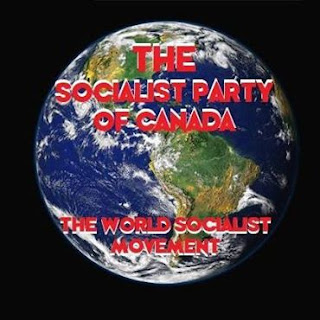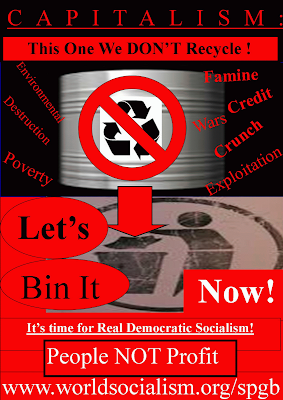What constitutes a socialist revolution? When socialists say that we need a revolution, we are calling for a very big change. But we are not using the word as a sales gimmick. The eradication of capitalism entails a class war. In the sort of world, we want there will be no private or government ownership, no money and no countries. This kind of change indeed deserves the name “revolution.” The Socialist Party hold that the socialist revolution has to be majoritarian and must involve removing the capitalist class’s stranglehold on the machinery of government, thus denying them control over the state’s coercive apparatus and removing their claims to democratic legitimacy. When we use the term “majoritarian” this is not because we are obsessed with counting the number of individual socialists, but to show that we reject minority action to try to establish socialism. A "militant" minority cannot provoke a non-socialist-minded working class into carrying out a socialist revolution. That the socialist revolution (and subsequent operation of socialist society)requires the conscious political understanding and democratic action of the majority of the working class rather than an organisation by political leadership with a set of passive followers.
The Socialist Party does not believe in achieving socialism through coercion or through the violent seizure of power by a revolutionary vanguard. That's no basis upon which to build a fair and democratic society. No, the only way that socialism as we understand it could be set up and run is through the consent and cooperation of an overwhelming majority of the world's population. And the only way we will know once there is such a majority is when it says so via the ballot. It is then, and only then, that we will know that the time is ripe for the socialist revolution. It is then that we can start dismantling the coercive machinery of government and start taking control of the things we need to make society function in our own interests. That the socialist revolution can only be international, creating a worldwide society where production is carried out solely to meet the needs and desires of its inhabitants.
The SPGB argues that it is not enough to have thousands of demonstrators on the streets or even millions of workers occupying the factories. Above all the working class must have a clear understanding of what socialism entails and what methods are effective in overthrowing capitalism. A grasp of socialist principles by the vast majority of the workers is a minimal condition for going forward to socialism. The socialist revolution can only be democratic, in the sense of both being what the majority of people want and of being carried out by democratic methods of organisation and action. No minority revolution can lead to socialism, not even one that destroys the state (our case against certain anarchists). Hence our conclusion that the movement to establish socialism, and the methods it employs, must “prefigure” the democratic nature of socialism.
In considering the question of how realistic it is to expect a socialist revolution, it is important to consider the hidden history of events that most people are unaware of. It was in the Paris Commune of 1871 that French workers actually created organisations of mass control which challenged the old system for a brief space of time. In the Russian Revolutions of 1905 and 1917, workers and peasants developed similar structures of direct workers' control such as the workers councils and factory committees.
What happened on these occasions? Not socialist revolutions, as some claim. But they were significant in the history of the struggles of our class. They are significant because the sort of people who dismiss the possibility of revolutionary upheavals were dismissing it seconds before these events blew up in their faces. No one is in any position to dismiss the prospect of revolution who has not carefully examined these movements. In none of these cases was a socialist revolution achieved, but in each case there was a fundamental interruption of the ruling order and the appearance of new forms and conceptions of everyday life. To ignore them because of their failure is to miss the point. Individual revolts are bound to fail until they are accompanied by a widespread and growing—and ultimately worldwide—socialist consciousness. Marx's analysis shows that the socialist revolution must be world-wide and cannot be achieved in one country alone. Because capitalism has become a world-wide system the society to replace it must also be world-wide. Class emancipation must mean the "freeing of the whole of society from exploitation, oppression and class struggle . . ."
What we hope these brief examples show is that real change can be brought about by workers. Socialism is not a utopian dream. It is an ever-present undercurrent in working class practice. The task is to make it the main one. That these revolts did not go farther is hardly surprising. What is inspiring is that they went as far as they did. The socialist revolution is not likely to start from some strike over wages spreading to the whole of the working class. Certainly, workers can learn from the experience of industrial struggles against employers that socialism is the only way out and, in this sense, strikes can contribute to a growth of socialist consciousness. But so can the many other experiences of the way capitalism works against the interests of workers (bad housing, poor health care, pollution, wars and the threat of war, etc, etc). 99 percent of the socialist revolution consists of imbuing our class with the confidence and ambition to succeed, and a revulsion of living as wage slaves whether pampered or ill-fed: once we have this our numbers will carry the day. The productive powers have been increased to a vast degree, yet people are still idle, starving, poverty stricken, and homeless, while the machinery of production is misused or neglected. This must change. This will change.














